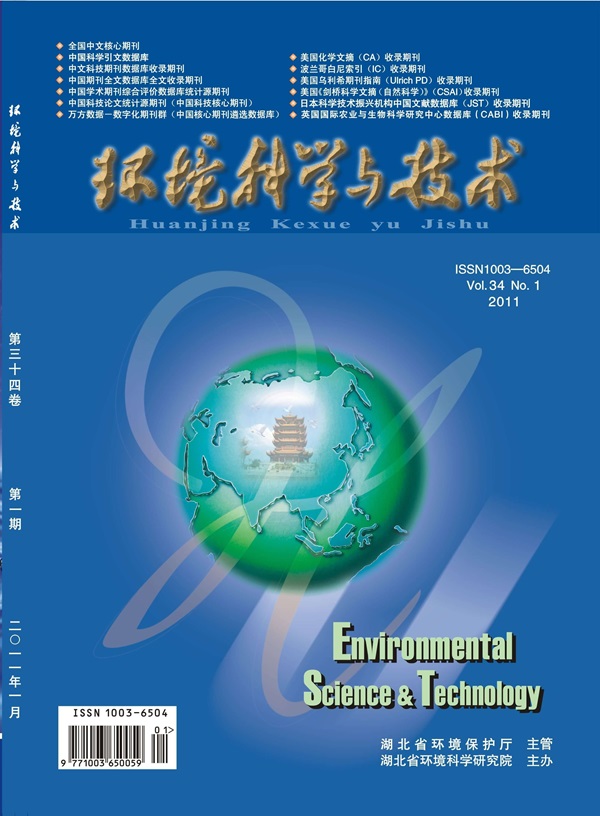Organophosphate Insecticide Malathion Induces Alzheimer’s Disease-Like Cognitive Impairment in Mice: Evidence of the Microbiota-Gut-Brain Axis
IF 10.8
1区 环境科学与生态学
Q1 ENGINEERING, ENVIRONMENTAL
引用次数: 0
Abstract
Evidence suggests that exposure to organophosphate pesticides increases the risk of neurodegenerative diseases, but the mechanisms remain unclear. This study investigated the effects of malathion on Alzheimer’s disease (AD)-like symptoms at environmentally relevant concentrations using wild-type (WT) and APP/PS1 transgenic mouse models. Results showed that malathion exposure induced AD-like cognitive impairment, amyloid-β (Aβ) accumulation, and neuroinflammation in WT mice, with worsened symptoms in APP/PS1 mice. Mechanistic studies revealed that malathion induced AD-like gut microbiota dysbiosis (reduced Lactobacillus and Akkermansia, and increased Dubosiella), causing gut barrier impairment and tryptophan metabolism disruptions. This resulted in a significant increase in indole derivatives and activation of the colonic aryl hydrocarbon receptor (AhR), promoting the kynurenine (KYN) pathway while inhibiting the serotonin (5-HT) pathway. Increased neurotoxic KYN metabolites (3-hydroxykynurenine and quinolinic acid) triggered gut and systemic inflammation, upregulating hippocampal IL-6 and IL-1β mRNA levels and thereby causing neuroinflammation. Gut tryptophan metabolism disruptions caused hippocampal neurotransmitter imbalances, reducing the levels of 5-HT and its derivatives. These effects promoted AD progression in both WT and APP/PS1 mice. This study highlights the crucial role of the microbiota-gut-brain axis in AD-like cognitive impairment induced by malathion exposure, providing insights into the neurodegenerative disease risks posed by organophosphate pesticides.

有机磷杀虫剂马拉硫磷诱发小鼠阿尔茨海默病样认知障碍:微生物群-肠-脑轴的证据
有证据表明,接触有机磷农药会增加罹患神经退行性疾病的风险,但其机理仍不清楚。本研究利用野生型(WT)和APP/PS1转基因小鼠模型,研究了环境相关浓度下马拉硫磷对阿尔茨海默病(AD)样症状的影响。结果表明,马拉硫磷暴露会诱导 WT 小鼠出现类似 AD 的认知障碍、淀粉样蛋白-β(Aβ)积累和神经炎症,而 APP/PS1 小鼠的症状会加重。机理研究发现,马拉硫磷会诱导类似于 AD 的肠道微生物群失调(乳酸杆菌和 Akkermansia 减少,Dubosiella 增加),导致肠道屏障受损和色氨酸代谢紊乱。这导致吲哚衍生物显著增加,并激活结肠芳基烃受体(AhR),促进犬尿氨酸(KYN)途径,同时抑制血清素(5-HT)途径。增加的神经毒性 KYN 代谢物(3-羟基犬尿氨酸和喹啉酸)引发肠道和全身炎症,上调海马 IL-6 和 IL-1β mRNA 水平,从而导致神经炎症。肠道色氨酸代谢紊乱导致海马神经递质失衡,降低了5-羟色胺及其衍生物的水平。这些影响促进了WT小鼠和APP/PS1小鼠的AD进展。这项研究强调了微生物群-肠道-脑轴在马拉硫磷暴露诱导的类似于AD的认知障碍中的关键作用,为有机磷农药带来的神经退行性疾病风险提供了启示。
本文章由计算机程序翻译,如有差异,请以英文原文为准。
求助全文
约1分钟内获得全文
求助全文
来源期刊

环境科学与技术
环境科学-工程:环境
CiteScore
17.50
自引率
9.60%
发文量
12359
审稿时长
2.8 months
期刊介绍:
Environmental Science & Technology (ES&T) is a co-sponsored academic and technical magazine by the Hubei Provincial Environmental Protection Bureau and the Hubei Provincial Academy of Environmental Sciences.
Environmental Science & Technology (ES&T) holds the status of Chinese core journals, scientific papers source journals of China, Chinese Science Citation Database source journals, and Chinese Academic Journal Comprehensive Evaluation Database source journals. This publication focuses on the academic field of environmental protection, featuring articles related to environmental protection and technical advancements.
文献相关原料
公司名称
产品信息
索莱宝
ELISA kits for interleukin-8 (IL-8)
索莱宝
ELISA kits for interleukin-6 (IL-6)
阿拉丁
Corn oil
 求助内容:
求助内容: 应助结果提醒方式:
应助结果提醒方式:


